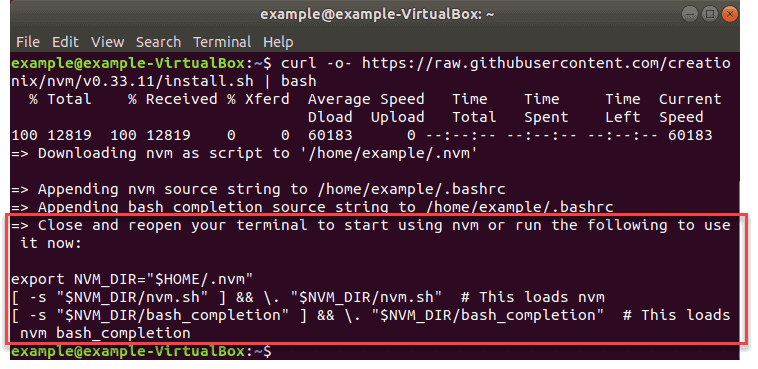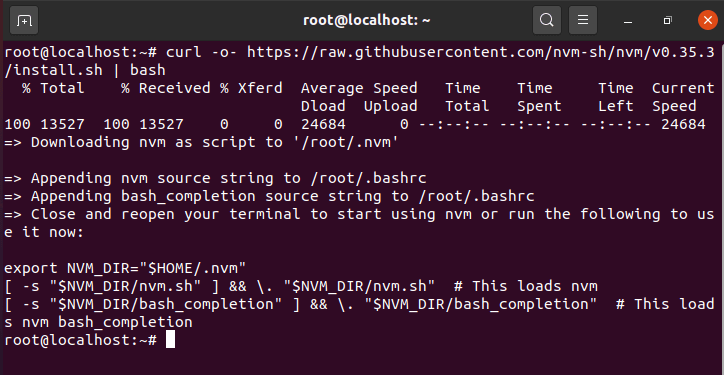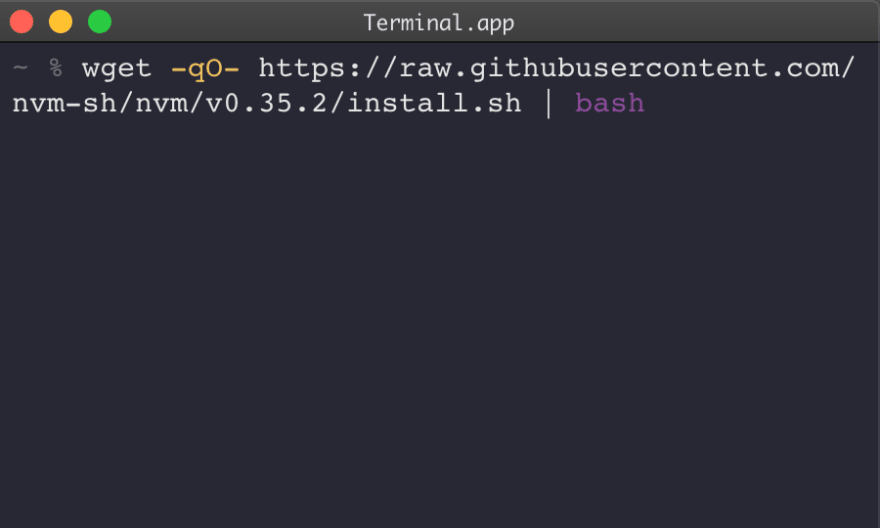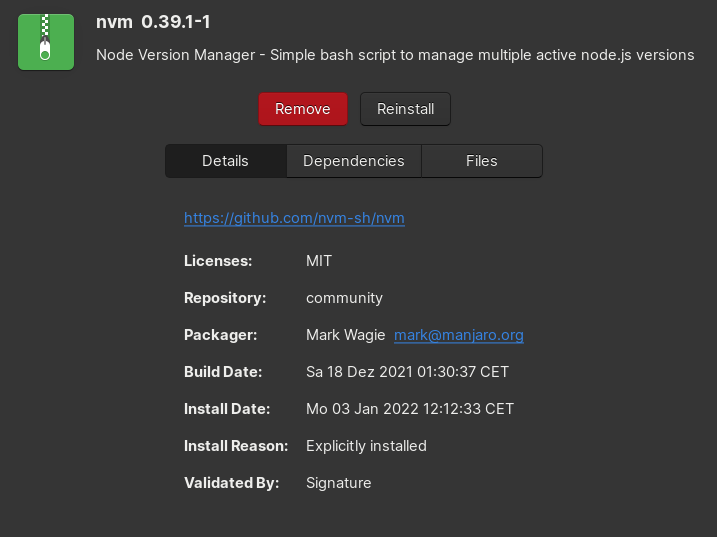

- Nvm install latest nodejs how to#
- Nvm install latest nodejs update#
- Nvm install latest nodejs software#
- Nvm install latest nodejs code#
Now run the command below to extract and install the binary package in /usr/local: To unzip the file, you will need the xz-utils package, to install it, run :

You can install the package via the browser itself, but if you prefer to use the terminal, keep in mind that the specific version of the node may change while updates are released. If you are desperate and the other options didn’t work out, you can visit the official downloads page to get a 32-bit or 64-bit binary package. To install the latest version, run the command :Īs it was the case with the first method, replace the #s with the required Node JS version.
Nvm install latest nodejs code#
Run the lines of code below on your terminal to clear the npm cache, install the “n” module and install the latest stable version of Node JS.
Nvm install latest nodejs update#
Now to update Node JS, you will need an npm module called “n”. Now to install the latest version of npm, execute the command :Īgain to make sure that the update has been done correctly. Node JS comes with npm pre-installed, but it is updated more often than Node. The Node Package Manager, or NPM, helps you discover, share, and use code, along with dependencies. If NVM didn’t work for you, a package manager is now your best alternative. Replace the #s with the required Node JS version. To see the latest npm version for installation, run the command :ĭownload, install and compile the latest versions of Node JS using You can check which versions are currently installed with the command :
Nvm install latest nodejs how to#
Read: How to install Node.js on Linux/Ubuntu The command will return the version of nvm if all goes well. If youre running a system without prepackaged binary available, which means youre going to install nodejs or io.js from its source code, you need to make sure. To check if the installation was successful, invoke the command : How to install NVM: To install or update NVM, you can get the installation script using cURL: Sudo apt-get install build-essential checkinstall libssl-dev To install the packages, run the command : Run an update first, then we’ll install the packages. You will need a C ++ compiler, the package build-essential and the library libssl-dev. It is by far the best method to update NodeJS on Linux machines. Let’s start with NVM, Node Version Manager. How to read and write JSON Files with Node.In this short tutorial, you will discover three ways to update NodeJs on Ubuntu 18.04 and 20.04. You can also download it and then run it, but cUrl or Wget with bash pipe are very convenient commands.ĮTL: Load Data to Destination with Node.js To install or update nvm, run the install script. Nvm works on any POSIX-compliant shell (sh, dash, ksh, zsh, bash), in particular on these platforms: unix, macOS, and windows WSL. In a production environment use the operating system package manager, or a server tooling to install and lock your specific version of Node.js. If you use nvm or similar, you should ensure that your PATH lists nvms shims before the. It is the preferred way to manage Node.js locally. This will also install Node.js if it is not already installed. There was a bug in some versions of npm that kept this from working, so.

When npm is used to install itself, it is supposed to copy this special builtin configuration into the new install. Nvm is a version manager for node.js, designed to be installed per-user, and invoked per-shell. The Node installer installs, directly into the npm folder, a special piece of Windows-specific configuration that tells npm where to install global packages.
Nvm install latest nodejs software#
One of the best books in software development, sold over 200,000 times. The Pragmatic Programmer: journey to mastery.

I can only recommend using nvm, even if you only need one single version of Node.js, there is a high chance it won't stay like this and switching between different versions is easy. Using the Node.js Version manager (nvm) makes installing and managing multiple versions of Node.js on a single local environment easy.


 0 kommentar(er)
0 kommentar(er)
